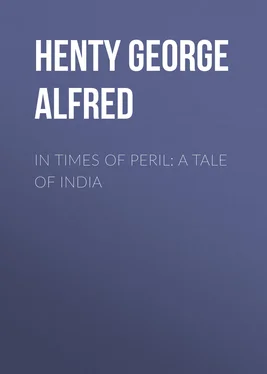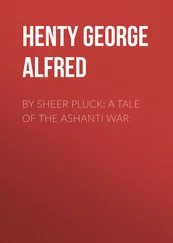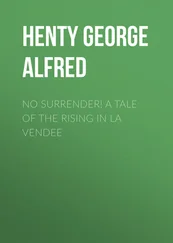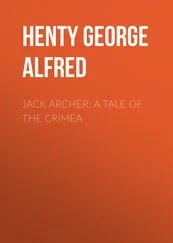George Henty - In Times of Peril - A Tale of India
Здесь есть возможность читать онлайн «George Henty - In Times of Peril - A Tale of India» — ознакомительный отрывок электронной книги совершенно бесплатно, а после прочтения отрывка купить полную версию. В некоторых случаях можно слушать аудио, скачать через торрент в формате fb2 и присутствует краткое содержание. Жанр: foreign_children, foreign_antique, foreign_prose, на английском языке. Описание произведения, (предисловие) а так же отзывы посетителей доступны на портале библиотеки ЛибКат.
- Название:In Times of Peril: A Tale of India
- Автор:
- Жанр:
- Год:неизвестен
- ISBN:нет данных
- Рейтинг книги:3 / 5. Голосов: 1
-
Избранное:Добавить в избранное
- Отзывы:
-
Ваша оценка:
- 60
- 1
- 2
- 3
- 4
- 5
In Times of Peril: A Tale of India: краткое содержание, описание и аннотация
Предлагаем к чтению аннотацию, описание, краткое содержание или предисловие (зависит от того, что написал сам автор книги «In Times of Peril: A Tale of India»). Если вы не нашли необходимую информацию о книге — напишите в комментариях, мы постараемся отыскать её.
In Times of Peril: A Tale of India — читать онлайн ознакомительный отрывок
Ниже представлен текст книги, разбитый по страницам. Система сохранения места последней прочитанной страницы, позволяет с удобством читать онлайн бесплатно книгу «In Times of Peril: A Tale of India», без необходимости каждый раз заново искать на чём Вы остановились. Поставьте закладку, и сможете в любой момент перейти на страницу, на которой закончили чтение.
Интервал:
Закладка:
"Here, boys, is a ear of Indian corn apiece; eat that and then get to work."
The frugal meal was soon over, and they then set to work, cutting down, breaking off, and tearing up large reeds with which to make floats. The boys had knives, but the others had been stripped of everything they had at the time of their capture. In about an hour, however, five bundles were made, each some six feet long and nearly three feet thick. The muskets and ammunition pouches were fastened on these, and soon after it was quite dark they entered the water.
"There are no crocodiles, I hope," Dick whispered to Ned.
"Nothing to fear in these large rivers; the chances of meeting one are very small."
"All right," Dick said. "Of course we've got to risk it. But they're as bad as sharks; and sharks, as the Yankee said, is pison. Well, here goes."
When the bundles were placed in the water they were lashed side by side with long trailing creepers which grew abundantly among the rushes; and they were thus secured from the risk of turning over from the weights on the top. Upon the raft thus formed their clothes were placed, and then, side by side, pushing it before them, the party shoved off from shore. In twenty minutes they touched ground on the other side. They dressed, examined their muskets to see if they were in good order, and then started in the direction in which they knew Meerut to be. Several times they paused and listened, for they could occasionally hear the noise of galloping men, and it was evident that there were troops of some kind or other moving about.
They walked for some hours until they thought that they could not be far from their destination, and had begun to congratulate themselves upon being near their friends, when the sound of a strong body of men was heard sweeping along the level plain across which they were now passing.
"There is a small building ahead," the major said; "run for that; they are coming across here."
They were seen, for a shout of "Who goes there?" in Hindostanee was heard.
"Give me your musket, Dick," Captain Dunlop exclaimed. For the lad, with the weight of his musket and ammunition, could hardly keep up with the others.
Just in time they reached the building in front of them, rushed in, and closed the door as the cavalry swept up. It was a small temple; a building of massive construction, with one little window about six inches square, and on the same side a strong door.
"Pile everything against the door," the major cried. "Dunlop, fire at once at them. Our only chance is to hold out with the hope that we may be heard, and that some of our fellows may come to the rescue."
Captain Dunlop fired just as the troopers dashed up to the door.
"Now, Manners, steady, pick off your man," the major said, as, aided by the boys, he jammed a beam of wood between the door and the wall, at such an angle that, except by breaking it to pieces, the door could not be forced.
"Now," he said, "it's my turn;" and he fired into the enraged enemy. "Now, Ned, steady. Are you loaded again, Dunlop?"
"Yes, major; just ready."
"Dick, you follow; take good aim."
The cavalry answered their fire, every shot of which was taking effect, by a confused discharge of their pistols at the door and window.
"Draw off!" their leader shouted; "rear-rank men hold the horses, front-rank men dismount and break in the door."
The order was obeyed; and the troopers rushed forward on foot, and were met by a steady fire, to which the straggling return of their pistols was but an inefficient answer. Vainly the mutineers hacked at the door with their sabers and struck it with their pommels.
"Throw yourselves against it, all at once," cried their leader; and a dozen men sent themselves against the door; it creaked and strained, but the beam kept it in its place.
"You keep up the fire through the window," said the major; "the boys and I will fire through the door."
Yells and shrieks followed each shot through the door, and after three or four minutes the troopers drew off.
"Any one hurt?" the major asked.
"I have got a bullet in my shoulder," said Captain Dunlop.
But that was the only reply. There was a shout outside, and Manners exclaimed: "Confound the fellows, they have got a big log of wood that will soon splinter the door."
"We must stop them as long as we can," said the major, as he fired among the men who were advancing with the log.
Several Sepoys fell before they got up to the house, but they pressed on, and, at the first blow given by the battering-ram driven by the men, the door split from top to bottom.
"Fix bayonets," the major said. "Now, Manners, you and I will hold them back. Not more than two can come at once, and their swords are of no use against bayonets in a narrow space. Dunlop, will you stand in reserve? you have still got your right hand; use your bayonet as a dagger if a rush comes. Boys, you go on loading and firing; put in four balls each time. If they get in, of course use your bayonets; there goes the door!"
A shout burst from the natives as the last portion of the door dropped from its hinges, and the doorway was open. There was, however, no inclination betrayed to make a rush.
"Forward! Death to the infidel dogs!" shouted their officer.
"Suppose you lead us," said one of the troopers; "the officers always show the way."
"Come, then," cried an old officer, on whose breast hung several medals; "follow me!"
Drawing his sword, he rushed forward, followed by twenty of his men. But as he passed over the threshold he and the trooper next to him fell beneath the bayonet thrusts of Major Warrener and his companion. The next two, pushed forward by their comrades, shared the same fate; while, as they fell, the muskets of Ned and Dick sent their contents into the mass. The rest recoiled from the fatal doorway, while the defenders set up a cheer of triumph. It was drowned in a crash of musketry, mingled with a cry of surprise and despair from the natives, as a body of British soldiers leaped from the wood, and followed their volley by an impetuous charge. The cavalry on the plain turned and fled at a gallop; and in five minutes, but for a few dark figures prostrate on the plain, not an enemy was in sight.
"Well, gentlemen, you have made a stout defense," the officer in command said, as he returned to the shrine, outside which the little party had gathered. "It seems as if you could have done without my help. Who are you, may I ask? And where have you sprung from?"
"Why, Sibbold, is it you? You haven't forgotten Warrener? And here are Dunlop and Manners."
"Hurrah!" shouted the officer. "Thank God, old fellows, you are saved; we fancied that you had all gone down. I am glad;" and he shook hands enthusiastically with his friends; while two of the officers, coming up, joined in the hearty greeting.
"Do those two men belong to your regiment?" Captain Sibbold asked. "If so, they are wonders; for I don't know a case as yet where any of the men proved true when the rest mutinied."
"They are my sons," Major Warrener answered.
"What?" exclaimed the other, laughing—believing that the major was joking.
"It's a fact, as you will see when they have got rid of the stains on their faces," he replied; while Captain Dunlop added, "and two as fine young fellows as ever stepped. Do you know that we three were prisoners, and that these lads rescued us from the middle of a pandy regiment. If they hadn't we should have been dead men before now. And now have you got anything to eat at Meerut, for we are famishing? In the next place, I have got a bullet in my shoulder, and shall enjoy my food all the more after it has been taken out. Our stories are long and will keep. How go things here?"
"Not very brightly, Dunlop; however, that will keep, too; now let us be off. Have we any casualties, sergeant?" he asked a non-commissioned officer who came up for orders.
Читать дальшеИнтервал:
Закладка:
Похожие книги на «In Times of Peril: A Tale of India»
Представляем Вашему вниманию похожие книги на «In Times of Peril: A Tale of India» списком для выбора. Мы отобрали схожую по названию и смыслу литературу в надежде предоставить читателям больше вариантов отыскать новые, интересные, ещё непрочитанные произведения.
Обсуждение, отзывы о книге «In Times of Peril: A Tale of India» и просто собственные мнения читателей. Оставьте ваши комментарии, напишите, что Вы думаете о произведении, его смысле или главных героях. Укажите что конкретно понравилось, а что нет, и почему Вы так считаете.












